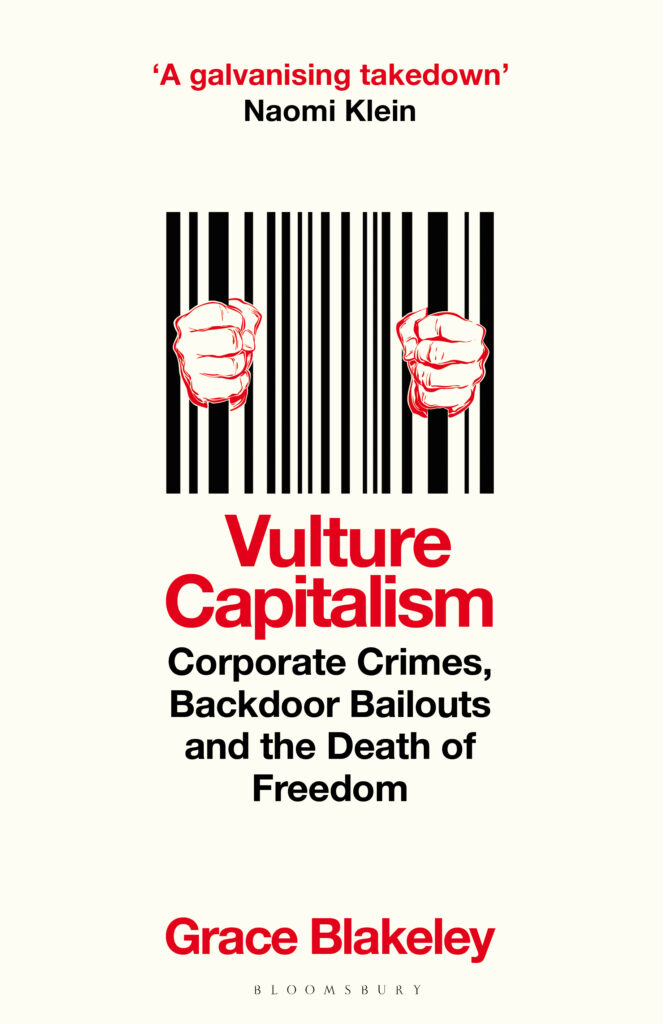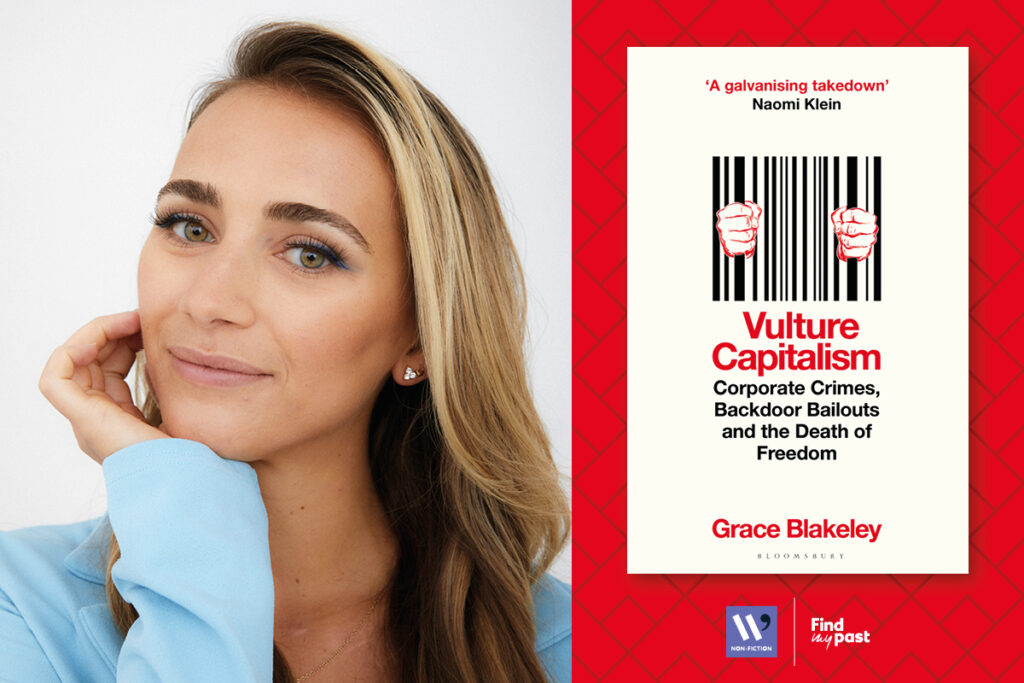Vulture Capitalism: Corporate Crimes, Backdoor Bailouts and the Death of Freedom by Grace Blakeley takes on the world’s most powerful corporations by showing how the causes of our modern crisis are the intended result of our capitalist system.
Longlisted for the 2024 Women’s Prize for Non-Fiction judge Venetia La Manna had this to say about the book: ‘Vulture Capitalism is life-changing and will shift your perspective on capitalism itself. Important, compelling and hopeful. This book has altered how I see the world.‘
To find out more about the book we spoke to Grace about her writing, research and current reads.

Describe your book in one sentence as if you were telling a friend.
Our economy isn’t based on free markets and democracy, but monopoly and oligarchy, and it’s up to us to take back control.
Did you have any revelation moments when writing your book? When the narrative and your objectives all fell into place?
After I had handed in my first draft (which was double the length of the final text!), I had a chat with my editor, Alexis at Bloosmbury. She was very encouraging and had clearly deeply engaged with the argument, but she reminded me that I didn’t have anything to prove and I didn’t need to use complex theoretical jargon to support my points. This was a particularly challenging moment for me, as despite my relative success I still had some deep insecurities about my competence as a writer and intellectual – particularly in a field like political economy, which is so dominated by men. But my discussion with Alexis led me to realize that my arguments would be so much more persuasive if I was able to make them as clear, simple and succinct as possible. Ultimately, I realized that changing as many minds as possible was far more important than proving myself to the established names in my field! And the final text ended up shorter and far more accessible than it otherwise would have been.
What is the one thing you’d like a reader to take away from reading your book?
The final paragraph of my introduction reads:
By the time you finish this book, it is my hope that you will be convinced that markets and states are not separate domains of power; that capitalism is not defined by the presence of free markets, but by the rule of capital; and that socialism is not defined by the dominance of the state over all areas of life, but by true democracy. More than anything, I hope that by the time you finish reading you will be convinced that you have the power to change the way the world works. Because there are a lot of very powerful people out there who want you to believe that you don’t.
Which other female non-fiction writers inspire you and why? Any particular title?
Naomi Klein has always been my inspiration as a writer. Her work helped to form my politics when I was a teenager, and has continued to inform and inspire me in my journey as a writer and activist. Receiving an endorsement from her for Vulture Capitalism was a dream come true!
What is the best piece of writing advice you have ever received?
Just start! Whenever I am starting a new project, or even just writing an article, this is the advice I have ringing in my ear. It’s easy to sit in front of a keyboard for hours thinking about how to plan your argument, but I have always found that there’s a balance to be struck between knowing where you want your argument to go, and just letting the words flow. So sometimes it’s best just to put pen to paper and see what comes out – you can always go back and edit!
What book is currently on your nightstand?
I’m currently on a train and in front of me I have ‘Chaos in the Heavans: The forgotten history of climate change‘, which I’m very excited to start reading. I also always have a few fiction and personal development books on the go at any one time too – at the moment the fiction book I’m reading is Jamaica Inn by Daphne du Maurier (set just up the road in Cornwall), and the personal development book I’m reading is Your Pocket Therapist.








